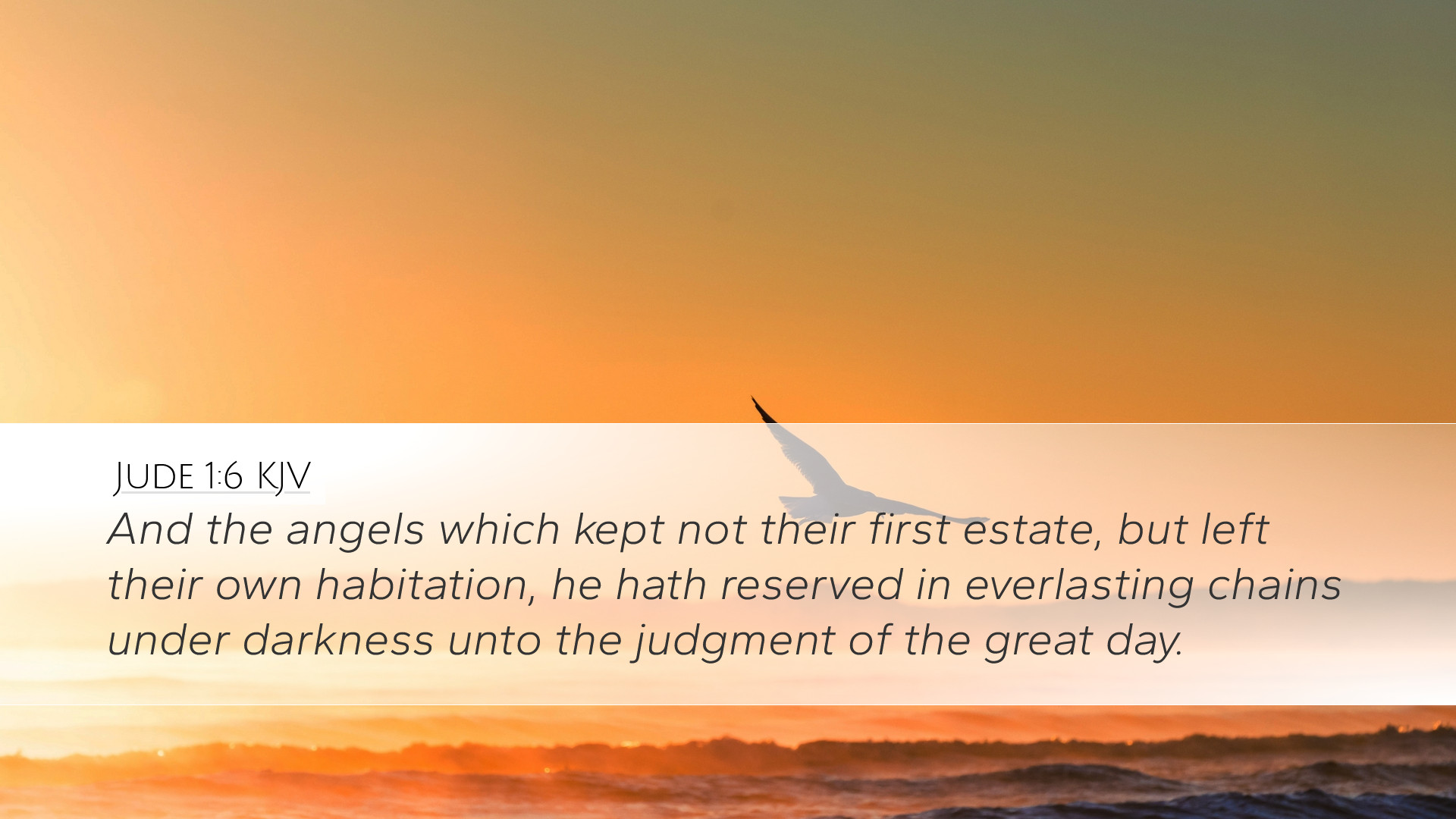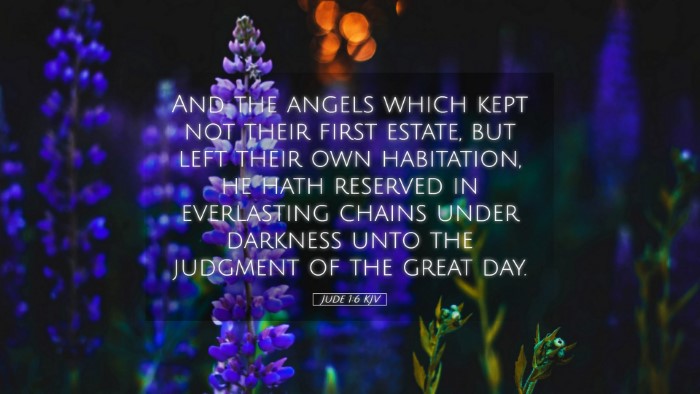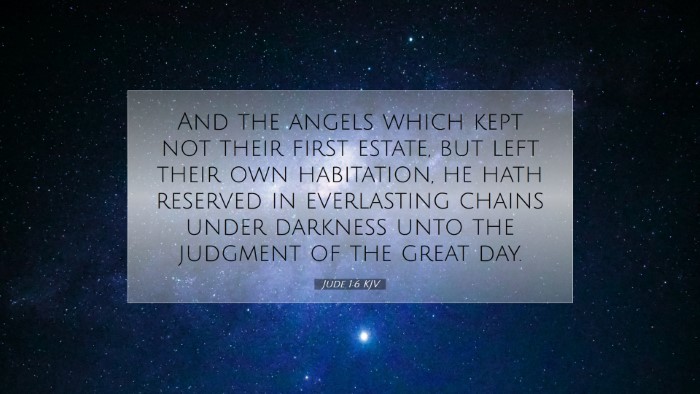Commentary on Jude 1:6
Verse Reference: Jude 1:6 - "And the angels which kept not their first estate, but left their own habitation, he hath reserved in everlasting chains under darkness unto the judgment of the great day."
Introduction
This verse from the Epistle of Jude serves as a stern warning concerning the consequences of rebellion against God. Jude draws upon the example of angels who abandoned their proper position, which provides a historical context that reinforces his exhortation against immorality and the danger of straying from divine authority. In the following sections, insights from various public domain commentators will be synthesized to provide a comprehensive understanding of this pivotal scripture.
Context of the Passage
Jude's epistle was written to address the rise of false teachers and immoral conduct infiltrating the early church. By invoking the example of angels—beings of high rank who rebelled against their Creator—Jude establishes a precedent for the judgment that awaits those who defy God's order.
Insights from Public Domain Commentaries
Matthew Henry's Commentary
Matthew Henry emphasizes the significance of the term "angels which kept not their first estate." He underscores that these angels were granted a position of honor and authority, yet they chose to abandon it in pursuit of rebellion. Henry suggests that their decision resulted in severe consequences, noting that they are now "reserved in everlasting chains." He likens this to the judgment reserved for the ungodly and underscores the importance of heeding Jude's warning against following false teachers who mirror this rebellion.
Albert Barnes' Notes on the Bible
Barnes elaborates on the notion of 'first estate,' explaining that it refers to the original and exalted state that these angels occupied. He comments on the 'everlasting chains,' indicating that these angels are not merely restrained, but bound in a manner that reflects the seriousness of their transgression. Barnes highlights how Jude's reference serves to illustrate a broader theological principle: those who know the truth and reject it face severe judgment. The imagery of being in 'darkness' further evokes a sense of spiritual despair and isolation, akin to the fate awaiting those who reject God's authority.
Adam Clarke's Commentary
Clarke focuses on the historical background of the rebellious angels, suggesting that Jude may be referencing an ancient tradition regarding the Watchers, as noted in the Book of Enoch. He asserts that these angels were sent to observe humanity but ultimately succumbed to temptation, leading to their fall. Clarke’s commentary accentuates the importance of understanding the broader narrative of fallen beings as a cautionary tale for humanity. He elaborates on the concept of 'the judgment of the great day,' reminding readers that divine justice is assured and that every being, celestial or terrestrial, will ultimately face their Creator's judgment.
Theological Implications
The plight of the fallen angels serves as a stark reminder of the spiritual realities that underpin Jude’s message. Through their example, Jude highlights several critical theological implications:
- The Sovereignty of God: The narrative illustrates God's ultimate authority over all beings, demonstrating that neither human nor angelic defiance can thwart His plans.
- The Consequence of Rebellion: The fate of the fallen angels serves as a warning against the consequences of abandoning God’s intended purpose.
- Judgment and Accountability: Just as the angels face judgment, so too will humanity be accountable for its actions, emphasizing the necessity of living in accordance with divine truth.
Practical Application
For pastors, students, and theologians, this passage emphasizes the need for vigilance against false teachings and the significance of maintaining one's calling. Believers are encouraged to reflect on their own lives and ensure that they align with God's will rather than succumbing to rebellious tendencies. Moreover, the understanding of judgment as a reality should instill a sense of urgency in evangelistic efforts, encouraging outreach to those who may be led astray.
Conclusion
Jude 1:6 serves as both a warning and a teaching moment, drawing on the historical example of fallen angels to underscore the seriousness of defying God's order. Through the insights of Henry, Barnes, and Clarke, readers are reminded of the eternal implications of our choices and the overarching themes of God's sovereignty, judgment, and mercy. Thus, this verse continues to resonate powerfully with believers, urging them to remain steadfast in their faith and devoted to the truth of the Gospel.


